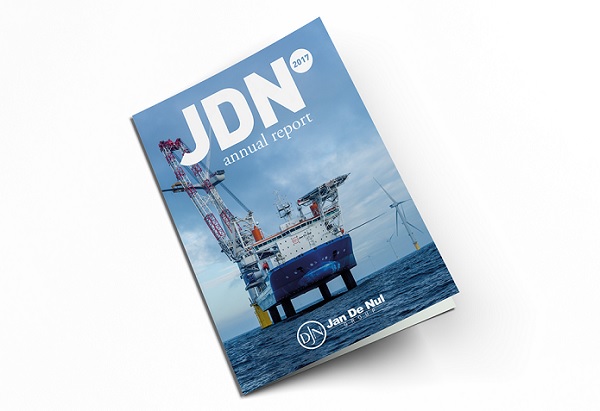
The Jan de Nul Group has published its 2017 annual report in which it recorded a profit of €70 million based on a turnover of €1,758 million.
The year 2017 did not bring the hoped-for recovery of the global economy and the global investment climate. The dredging market has even shrunk. In addition, low oil and gas prices have kept the oil and gas market economically. The positive point, however, is the growing awareness of climate change and the energy transition. As a result, Jan De Nul Group is experiencing increased activity in the offshore renewable energy market, also outside Europe. In addition to its maritime activities, Jan De Nul Group continues to use its knowledge and expertise in the civil and environmental market.
These market developments in 2017 generated an annual turnover of €1,758 million for Jan De Nul Group. For the first time, after a period of six consecutive years, the group remains below €2 billion. More importantly, however, is the continued, even growing profitability, of Jan De Nul Group's business. EBITDA in 2017 amounted to €365 million and rose to 21% of sales, representing an increase in EBITDA margin of 4% year-on-year. Net profit amounts to €70 million. In addition, Jan De Nul Group has a well-filled order book of €2.61 billion for the future, in line with previous years.
The turnover can be divided into 72% of dredging and offshore activities, 24% of civil activities and 4% of environmental activities. The ratio of activities to sales is in line with previous years.
Jan De Nul Group has traditionally focused on the successful execution of its core businesses, namely maritime works, both dredging and offshore activities, civil engineering works and environmental works. The growing diversification and integration of the businesses allows the group to remain strong, even in the event of a temporary drop in sub-markets. The group has proven the added value of an integrated approach in the implementation of the following multidisciplinary projects:
- the expansion of the territory of Monaco to 6 hectares of sea where the dredging division is responsible for the dredging and remediation of land, the environmental division of contaminated sediment treatment and the offshore division of underwater rock installations;
- the design and construction of two gravitational foundations (GBF) for the Danish Kriegers Flak wind farm where the civil division is responsible for the construction of the GBF and the offshore division installs and stabilizes structures at sea.









